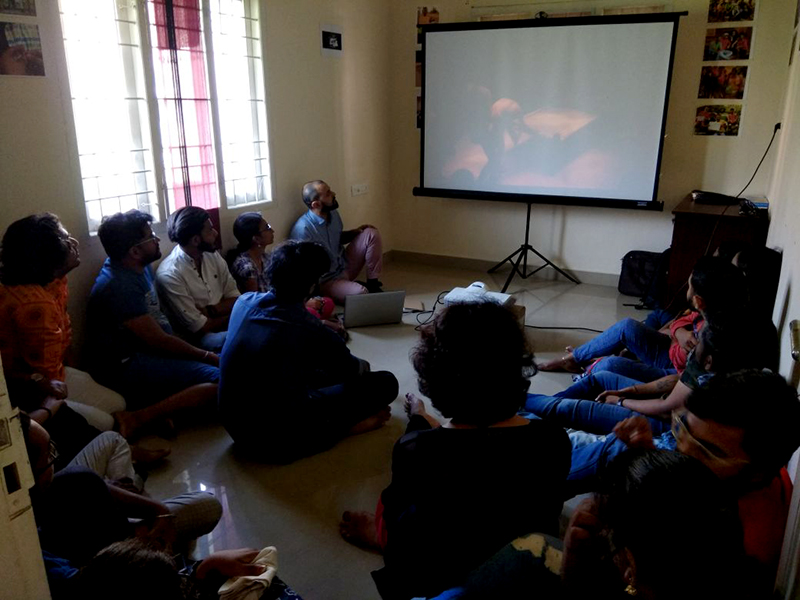Mandeep Singh Raikhy
Grant Period: One year
Mandeep Singh Raikhy is a dance practitioner based in Delhi. He began studying jazz at the Danceworx, New Delhi, and his subsequent interest in contemporary dance took him to Trinity Laban Conservatoire of Music and Dance, London where he completed a BA (Hons) in Dance Theatre. He undertook his first tour with Shobana Jeyasingh Dance Company, London and has toured with their annual productions between 2005 and 2009. He was also part of the company’s education team and has extensive teaching experience. Since 2010, Mandeep has created several dance works, notably Inhabited Geometry (2010), a male ant has straight antennae (2013) and Queen Size (2016). These works have travelled across the country and internationally over the years including Kampnagel, South Bank Centre and Singapore International Arts Festival. Since 2009, Mandeep is Managing Director at Gati Dance Forum that conducts various residencies, festivals, publications and advocacy initiatives. He has also led the curriculum development team for the Master’s in Dance Practice at Ambedkar University Delhi.
His latest work Queen-Size is centred around sexuality, desire and gender activism raising critical queries about Section 377 of the Indian Penal Code constituted in 1861 that criminalises homosexuality. Section 377 of the Indian Penal Code reads, “Whoever voluntarily has carnal intercourse against the order of nature with any man, woman or animal, shall be punished…”. The archaic law of 1861 introduced by the British, modelled on the Buggery Act of 1533, is still in force in India. LGBTQIA+ communities and Right to Privacy activists have been fighting the law on judicial and legislative levels over the last two decades. Mandeep’s work is an act of protest against this law which was triggered by Nishit Saran’s article “Why My Bedroom Habits Are Your Business”. Queen-Size took on the challenge to travel the country and perform the piece in various contexts. Inspite of the dearth of performance spaces ready to welcome this work and open conversations around the issues and concerns raised, the piece has been performed in 17 cities all over the country in a range of venues.
His current proposal supported by this grant is for the next phase of the work - to travel to five smaller cities and towns to conduct workshops. The workshops are aimed to open up discursive spaces on the topic of sexuality and desire which is often considered taboo in India. They have identified Bhopal, Baroda, Goa, Kochi and Ahmedabad to be the cities they would like to engage with. They have already reached out to organisations and activists in these cities and established preliminary contacts. In each place the team will explain the context, aims and structure of the workshops after the performance of the work. This will be followed by discussions around subjects like image, gaze, interpretation, performance, spectatorship and emotions. The third part of the workshop is aimed at developing a nuanced understanding of gender and sexuality. This will be followed by the understanding of the law and Gender justice movements in India. The relations between performance, activism and sexuality will be engaged with and followed by an open discussion to conclude the workshop. Given the unexpected enthusiasm around the piece in the first phase, this series of workshops can generate deeper conversations and touch a range of audiences who often remain outside of the ambit of Gender activism in bigger cities in India.
The outcomes of the project will be the five workshops at five different cities. All workshops will be documented through still photography. Given the sensitive nature of the subject and honouring the privacy of the participants, video recording will be avoided unless the participants agree. A comment book will be placed at each venue. These photographs, comments from the audience, media reports and publicity material will be deposited as deliverables to IFA. The project has some inherent risk given popular opinions on sexuality and conservative mores of society in the country. However, working closely with organisations rooted in these five cities and drawing up the plan from earlier experience, some of those risks have hopefully been mitigated.



